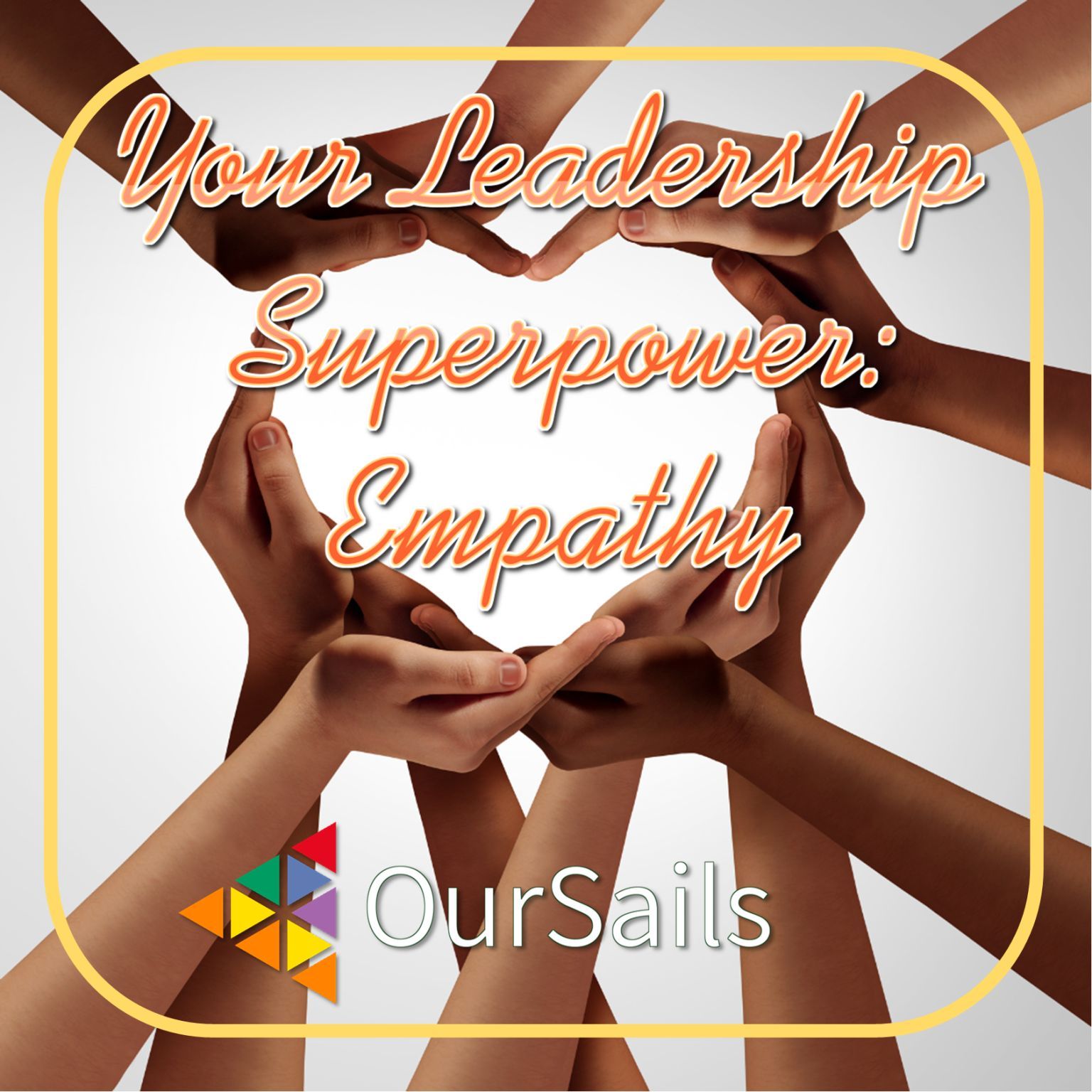Article Your Leadership Superpower: Empathy
In the realm of leadership, we often come across a diverse array of personalities. There are leaders who thrive on data, visionaries who paint grand pictures of the future, and those with diplomatic finesse. But what about those of us whose hearts are attuned to the feelings and experiences of the team we lead?

Empathy - The Gift That Keeps on Giving
As an empathetic leader, you possess a remarkable gift—the ability to connect with your team members on an emotional level. You sense when a colleague is struggling, celebrate their achievements with genuine warmth, and offer support in times of adversity. The bond you form with your team is built on trust, mutual respect, and a shared vision of success. These skills can foster a positive and trusting culture and can lead to heightened levels of commitment from your team members for your shared causes.
Leading with empathy is not without its challenges. You may find it difficult to strike the balance between your concern for your team and the need for accountability. The risk of becoming too emotionally invested in their struggles can lead to burnout. You only have so much time and energy to commit to your team so be honest with yourself and learn to prioritise the work you need to do against the support that you feel you must give others. You may also encounter resistance in environments that emphasise a more rigid, results-oriented approach but don’t let that dull your kindly spirit.
Effective 1-1 meetings are your key to fulfilling your potential as an empathetic leader. These meetings provide you with a platform to connect with your team members intentionally on an individual level. During these conversations, you can actively listen to your colleagues, understanding their aspirations, challenges, and concerns. These meetings go beyond work-related matters delving into the personal and emotional aspects as well. Effective 1-1 meetings provide a safe space for team members to share their feelings, fostering trust and nurturing strong, meaningful relationships that will enable you and your team to meet the challenges your business faces head on.
Compassionate leadership is not about being a doormat, nor is it about making decisions solely based on emotions. It's about recognising the profound impact of human connection within the workplace and using it to inspire others. As leaders, we can benefit from embracing our empathetic natures, tapping into our emotional intelligence, and leading with heart. It's an approach that doesn't compromise on accountability or results; rather, it enhances them by creating an environment where team members feel valued, and capable of reaching their full potential.
Empathetic Leadership: Nurturing Your Team's Full Potential
Empathetic leaders possess the unique ability to connect with their teams on an emotional level, fostering trust, mutual respect, and a shared vision of success. This approach, while transformative, comes with its own set of challenges, including balancing empathy with accountability and guarding against burnout. Effective one-on-one meetings are a key tool for building strong, meaningful relationships, and compassionate leadership doesn't compromise on results but enhances them by creating an environment where team members feel valued and capable of reaching their full potential.
To fulfill your potential as an empathetic leader, you could focus on these key actions:
Effective Listening: Listen actively to your team's concerns, both personal and professional. Your empathetic ear can be a game-changer for their growth and development and will develop the bond you share with each of your colleagues.
Balanced Accountability: Strike a balance between being supportive and holding your team accountable for their tasks and goals. When things go well, you can celebrate authentically because of close bonds and if targets are not being met you will have enough trust from others that they will likely open up to you and seek your support.
One-on-One Meetings: Embrace and prioritise effective one-on-one meetings with your team members, creating a space for trust, support, and personal growth. These regular meetings can form the bedrock upon which your team’s success is built.
Emotional Resilience: Develop strategies to manage your own emotional well-being, ensuring that your compassion doesn't lead to burnout. If you feel that you are giving too much of yourself, do not be afraid to slow down and be honest with your leader about what is realistically achievable with the time and resources at your disposal.
As an empathetic leader, you have the power to inspire change and transform lives. So, ask yourself this: "What kind of leader do I want to be? One who merely manages or one who nurtures a culture of empathy, trust, and unwavering support, empowering my team to reach new heights?"
In Conclusion
Leading with a compassionate heart has the potential to revolutionise the way we lead and influence our colleagues. By effectively utilising one-on-one meetings as a bridge to connect with team members, empathetic leaders can foster a sense of belonging, trust, and unity in their organisations. The choice to embrace this compassionate leadership style is a powerful one, and the impact it can have on your team's morale and success is immeasurable.
- Align to avoid confusion.
- Collaborate to avoid suspicion.
- Succeed without despair.